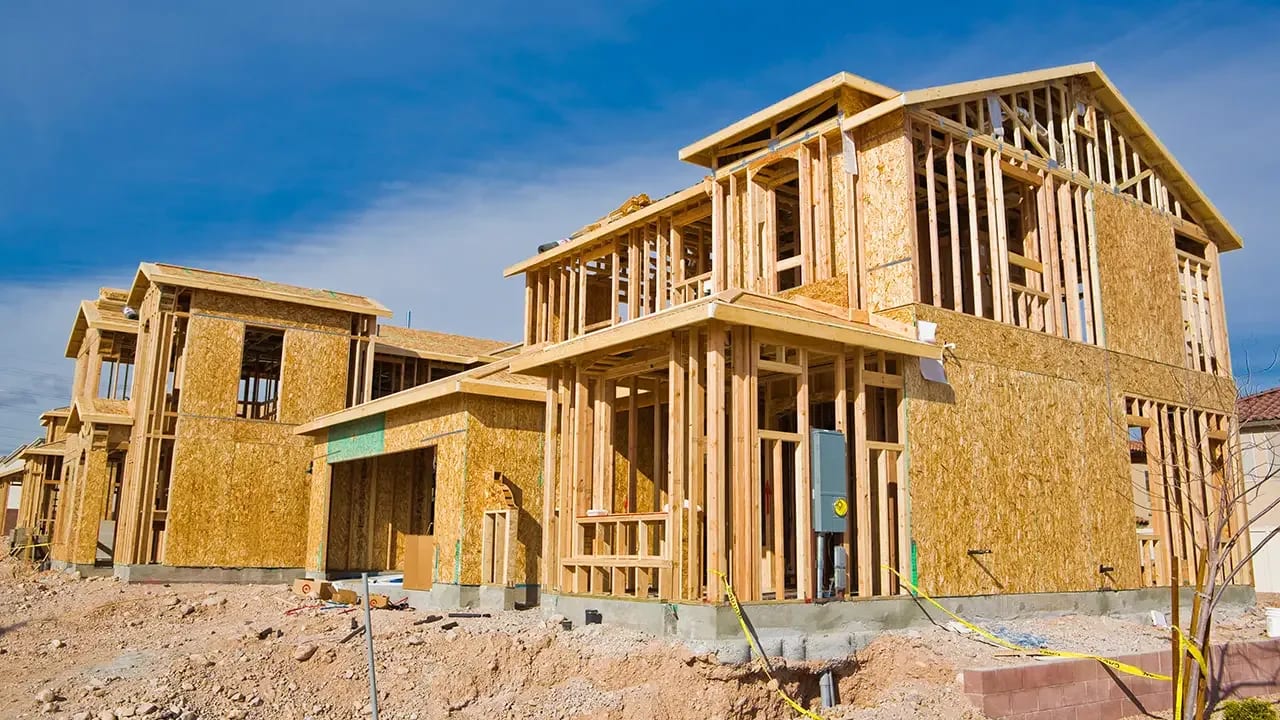The journey of buying your first home can indeed be exciting but also challenging, with many unanticipated obstacles along the way, such as today’s soaring home prices and rising inflation rates. As a first-time home buyer, it’s easy to overlook nuanced details of the home-buying process. These key tips will arm you with knowledge and guidance to try and navigate this milestone with confidence.
Understanding the financial aspects of home buying
Establishing a strong financial foundation is one of the most critical things to do in the home buying process.
Saving for a down payment is often the first task when planning to buy a house. Generally, the standard norm is a 20% down payment, but it’s important to note many lenders may accept less at the cost of a higher interest rate. To determine how much to save, first figure out how much house you can afford comfortably. This information can be used to create a targeted savings plan to meet your down payment goal.
“The best tip I can give is to start saving early and save smart, said Matthew Bizzarro, CEO at The Bizzarro Agency”. “Even if you don’t plan for a house for the next five to ten years, begin putting money away for a down payment. This does not mean putting cash in a sock under your bed, no, open a savings account that will make your money grow and work for you, such as a high-yield savings account. You can strategically save money by setting up automatic transfers in an HYSA where it will compound and grow faster to help reach your home buying goals earlier.”
Credit score also plays a substantial role in your home buying journey. It is one of the major factors mortgage lenders consider when determining loan terms and interest rates. A high credit score not only upholds your credibility but also shows your ability to repay a loan. To avoid unpleasant surprises, check your credit score in advance, providing ample time to take necessary steps to improve it if required.
Buying a house involves more than just saving for a down payment and securing a good interest rate. There are hidden costs that many first-time buyers overlook.
These typically include:
- Closing costs
- Homeowner’s insurance
- Property taxes
- Other ongoing maintenance costs
These expenses can add up significantly and should be factored into your overall budget planning. By taking these into account, you can have a more realistic understanding of what your future home will truly look like.
Navigating the mortgage process
Realizing the complexity of the mortgage landscape is integral to your journey. Pre-approval and pre-qualification are two crucial aspects that influence a buyer’s capacity and credibility during the home loan process. Pre-qualification is an initial, basic assessment of your eligibility for a loan, giving you a general idea of the amount you might receive. However, pre-approval carries more substance with sellers. It involves a detailed examination of your financial history, resulting in a more accurate loan amount offer. Essentially, it showcases to sellers a strong and reliable intention to purchase.
The next important step for potential homeowners is to choose the right type of mortgage. The real estate market offers a variety of mortgage types, including fixed-rate, adjustable-rate, FHA and VA loans, each carrying unique advantages and specific requirements. These diverse mortgage options are designed to suit various financial capabilities and long-term plans. Therefore, choosing one that adequately aligns with your financial status and future objectives is crucial.
Finally, understanding the dynamics of mortgage rates is paramount in this process. Prospective homeowners need to distinguish between fixed and adjustable-rate mortgages. As the name suggests, a fixed-rate mortgage implies the interest rate will remain unchanged throughout the loan term. Conversely, adjustable-rate mortgages are influenced by market rates, and the interest rate can fluctuate over time.
Working with real estate agents
Despite this digital boom, an agent provides invaluable expertise throughout the process of buying a home. The question—Why have an agent—becomes crystal clear when considering the intricate nature of property negotiations, the cumbersome paperwork involved and the nuanced insights that might remain elusive to novices. An experienced real estate agent can efficiently navigate all these aspects considerably, easing the buying journey.
Real estate agent vs. realtor
The terms “real estate agent” and “realtor” are often used interchangeably. However, they are not synonymous. The key distinction is in the origin and the ethical standards these professionals uphold. All realtors are real estate agents, but the reverse isn’t true. Realtors align their practices with the National Association of Realtors, and they strictly adhere to its ethical code, which offers buyers an additional layer of assurance during property transactions.
The process of finding the right agent is as crucial as the decision to engage one. Buyers should prioritize agents intimately familiar with their preferred locales who have positive reviews and a verifiable track record of representing clients’ best interests. The right agent can significantly facilitate the home buying journey, making it a more enjoyable and less stressful experience.
House inspection and appraisal
The importance of home inspections cannot be overstated when purchasing a property. These inspections delve deep into the home’s structure, revealing potential issues that might not be visible during an initial visit or even a thorough walk-through. Beyond uncovering potential safety concerns or structural problems, a comprehensive inspection offers the home buyer an opportunity to negotiate any necessary repairs or price adjustments based on the inspector’s findings.
Understanding home appraisals is also crucial in the home buying process. An appraisal typically involves a professional evaluation of the property to estimate the value of the home in the current market. This ensures the property is priced fairly and not overvalued based on current trends. If the appraised value falls short of the asking price, it doesn’t necessarily mean the deal is off. Instead, it presents an opportunity for further negotiation with the seller, potentially resulting in a better deal for the buyer.
The final stage of the process involves responding appropriately to the results of both the inspection and the appraisal. If the results reveal significant issues with the property, the buyer may need to reconsider the purchase or renegotiate the contract based on the newly revealed information. It’s also possible to request the seller make the necessary repairs before the property changes hands.
Making and negotiating an offer
Understanding home values is a necessary step in the home buying process. One effective way to gauge the value of the property you’re eyeing is to check similar properties in the neighborhood. By doing so, you can get an understanding of price trends in the area, enabling you to discern a fair offer price. This evaluation involves comparing the features of the home in question to others in the vicinity, such as the number of rooms, size of the lot and other amenities.
When you gather ample information and insight from such comparisons and have a set budget in mind, you can proceed to the next step: making your first offer. Your real estate agent will be instrumental during this process. They will guide you through crafting a competitive offer that balances getting your dream home and not overpaying. This offer includes not only the price you’re willing to pay but may also include terms such as asking the seller to cover closing costs or requesting repairs.
The negotiation process can be tricky and might often be a test of patience. If your initial offer isn’t accepted, brace yourself for the ensuing negotiations. These often involve discussions over counteroffers and potential contingencies. During this phase, both parties examine the terms and conditions of the offer and seek a compromise that is mutually beneficial.
Closing on a house
Closing, while a significant milestone, is not the end of the home buying process. It is just as meticulous and detail-oriented as the commencement of the process, if not more. Upon reaching a deal, you should prepare for a thorough walk-through of the home. This step is crucial to try and ensure all the agreed repairs and changes have been satisfactorily made. Look out for any discrepancies or missed repairs because no detail is too small to be overlooked.
The walk-through is followed by another important part of the process: settling closing costs. Closing costs are the fees paid at the end of the real estate transaction, and they can add quite a chunk to your overall payment. These costs typically range from 3-6% of the purchase price and include myriad fees, such as loan origination charges, appraisal fees and title insurance. Budgeting for these costs is critical so they don’t catch you off guard. The dream of owning a home doesn’t stop at the property’s front door. It includes understanding and executing each step of the process diligently, right up to the turning of the key on closing day when you move in.
Despite the complexities involved, purchasing your first home doesn’t have to be an intimidating experience. With the right information and preparation, you can turn what may seem like a challenging process into an empowering and fulfilling journey. Keep in mind, every experienced home buyer started exactly where you are now. They also faced the same dilemmas and uncertainties, and they successfully navigated through just like you will. Take the time to think through every aspect to avoid any first-time mistakes
Embrace the process and start your home-buying journey today!
Article courtesy of The Ownerly Team, August 2023



